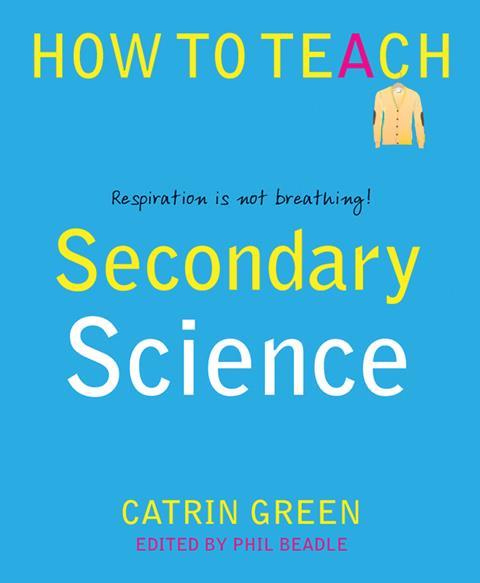A textbook for teachers
Catrin Green and Phil Beadle (ed)
Crown House Publishing
2016 | 224pp | £12.99 (PB)
ISBN 9781781352410
This book would be a useful addition to the shelf of any recent entrant to the teaching profession; it’s a quick read with many useful ideas. The classroom approaches discussed include a range of styles, with each suggestion tailored to a science classroom.
The writing is chatty and informal, which makes it accessible for those who want quick ideas rather than deep discussion of pedagogy. That doesn’t mean it necessarily lacks depth – on the contrary, there are references and links scattered throughout the text – but you can find some usable ideas without digging. I’d like to try some of these out, for example a wordless essay (tell a story using photos without captions), while others would fill me with terror. To all newly qualified teachers: the author isn’t forcing you to write, perform or sing science-themed versions of Pharrell Williams’ Happy. The variety means there will be something new for everyone.
I think it would be fair to say the accessibility comes at the price of being comprehensive. The focus is more on pedagogy that can be applied in many situations than on the details of specific topics. This does mean literacy and retrieval practice approaches are discussed, often an afterthought when content is the focus. It is interesting that maths is discussed as an example of a difficult topic, rather than as a cross-topic theme like literacy. I did find the explanations of ideas in physics teaching – energy stores and electric circuits, in particular – were not clear and could cause problems for non-specialists who didn’t seek more detail elsewhere.
Some of the points made are less for new practitioners and more for those thinking about the leadership of science departments, for example no-grades marking and policies on practical work. In some ways, this would be a very useful book to stimulate discussion between colleagues with differing experience.
The wider reading links are often excellent (although some don’t mention that they’re only for subscribers and Institute of Physics resources were omitted) but to make them easier to use, short URLs would have been better.
Purchase How to teach: secondary science from Amazon.co.uk










No comments yet